unseasonable these refugees--
arriving in the unwelcoming places at political times.
unseasonable this hope that rises, when the Movement
for Black Lives closes down the airport, in an
unexpected, perfect action. as people object to the
method, but, no. It turns out that polite requests for justice
are the ones white supremacy defers. later,
later, later. when the right moment is never,
and the toll of Black lives is rising. my friend
Rebecca says that what Joseph did
is shelter God in the world. I
aspire to shelter justice in the chambers of my beating
heart. To shelter the shout that Black Lives
Matter, no matter how white supremacy tries to hide or twist
or mute the ineffable truth. Love is this. Truth is this.
Let justice be that unseasonable gift
for which we have worked and prayed and waited, until finally, it arrives.
Good tidings. [Liberation!] Of great joy!
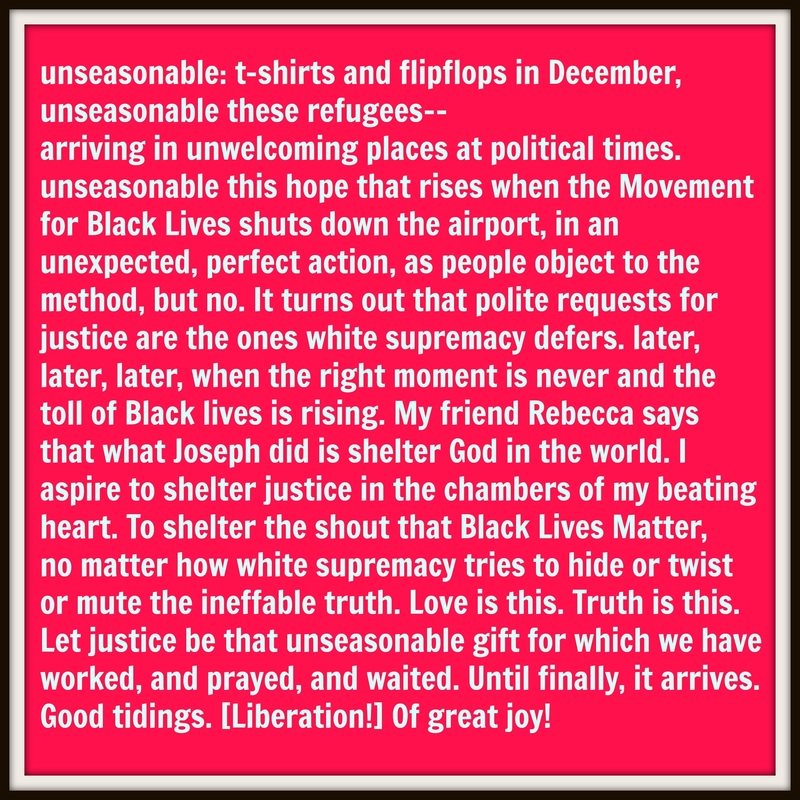
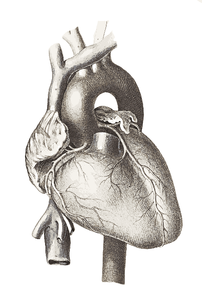


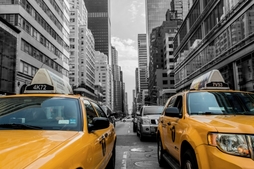
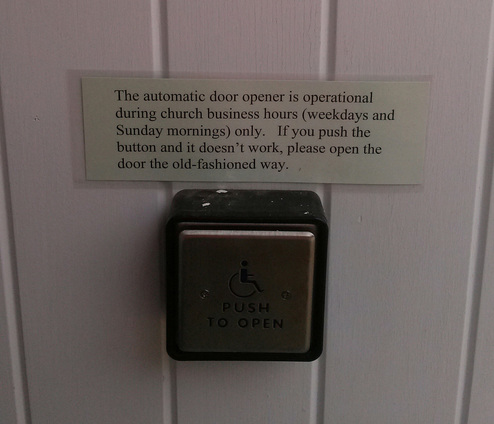
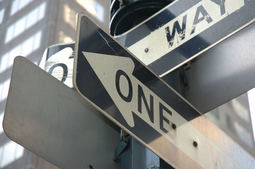
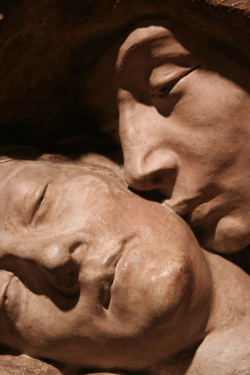
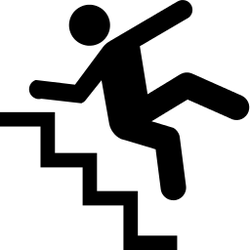
 RSS Feed
RSS Feed